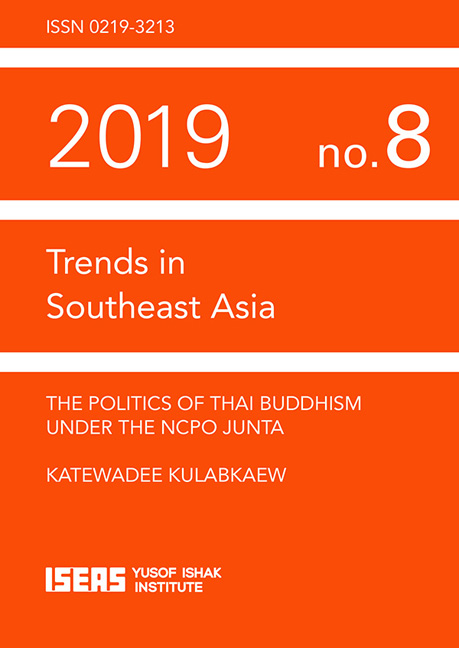
- Publisher:
- ISEAS–Yusof Ishak Institute
- Online publication date:
- February 2020
- Print publication year:
- 2019
- Online ISBN:
- 9789814843744
- Series:
- Trends in Southeast Asia

The past two decades have been a time of turmoil in Thailand's religious affairs. Disputes, debates and controversies concerning the administration of Buddhism, Thailand's national religion by tradition, have erupted more and more frequently. This chronic and unresolvable conflict originates from Thai Buddhists' inability to achieve a broad consensus on religious reform. Under the governance of the National Council for Peace and Order (NCPO) junta that came to power in 2014, the fierce struggle concerning Buddhist reform seemed to subside. Upholding and protecting Buddhism might be a duty of traditional Thai rulers who desire for a source of political legitimacy, but the NCPO's decisive actions concerning Buddhist institutional reform were not merely reflected respect for this tradition, but were closely intertwined with the dynamic of contending forces in Thailand's long-troubled religious politics. Conflicts between the influential religious nationalists and the Thai Sangha convinced the military government of the need to act, for the sake of national security and political stability.
 Loading metrics...
Loading metrics...
* Views captured on Cambridge Core between #date#. This data will be updated every 24 hours.
Usage data cannot currently be displayed.